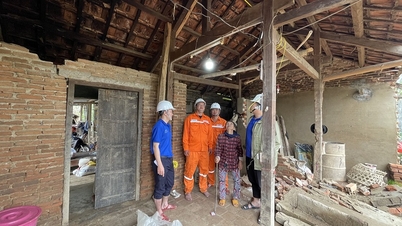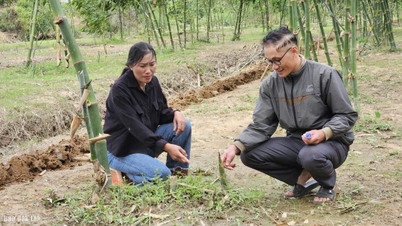
"A 30-year-old man" can make a mother's mental state increasingly exhausted - Photo: AI
The results are derived from an analysis of data from the Spanish Household Finance Survey, a survey included in the National Statistical Plan and conducted every three years, and published in the journal Social Science & Medicine.
The research team focused on parents aged 50 to 75, tracking their life satisfaction over time and comparing the differences between periods when their children left home or returned to live with them.
In European countries like Spain, over 40% of adults aged 25-34 still live with their parents, with the average age of leaving home being around 29.8. Besides economic factors, traditional family culture with its strong bonds and unequal division of labor within the family is also believed to contribute to the prolonged period of cohabitation.
Notably, the results showed that mothers living with children over 30 years old reported significantly lower levels of satisfaction, equivalent to a decline in their health from "very good" to "fair".
Meanwhile, fathers did not report a similar decline, reflecting the fact that the burden of caregiving in the family still falls more heavily on the mother's shoulders.
Dr. María José Gil-Moltó and Dr. Arne Risa Hole from the Experimental and Computational Economics Group (UJI) emphasize: "In an international context where cohabitation between parents and adult children is increasingly common following the financial crisis and more recently due to rising living costs, it is important to recognize that this cohabitation can negatively impact the mental health of parents, especially mothers."
Based on this research, the authors recommend that policymakers consider creating better conditions for youth self-reliance through appropriate housing, employment, and financial support policies.
In a country that highly values family like Vietnam, it's not uncommon for young people, especially men over 30, to live with their parents. Pressure from rising housing prices, a competitive job market, and societal expectations of "settling down before starting a career" makes many hesitant to leave their families.
However, the story is not just about economic factors; it also reflects changes in family structure, individual values, and the shifting gender roles in modern society. This is not just a story unique to Spain, but a widespread trend that raises many questions for housing, welfare, and youth education policies in many countries, including Vietnam.
Source: https://tuoitre.vn/song-voi-con-trai-tren-30-tuoi-doc-than-me-bi-anh-huong-suc-khoe-tinh-than-20250722171134441.htm





































![[Image] Close-up of the newly discovered "sacred road" at My Son Sanctuary](/_next/image?url=https%3A%2F%2Fvphoto.vietnam.vn%2Fthumb%2F1200x675%2Fvietnam%2Fresource%2FIMAGE%2F2025%2F12%2F13%2F1765587881240_ndo_br_ms5-jpg.webp&w=3840&q=75)













































































Comment (0)